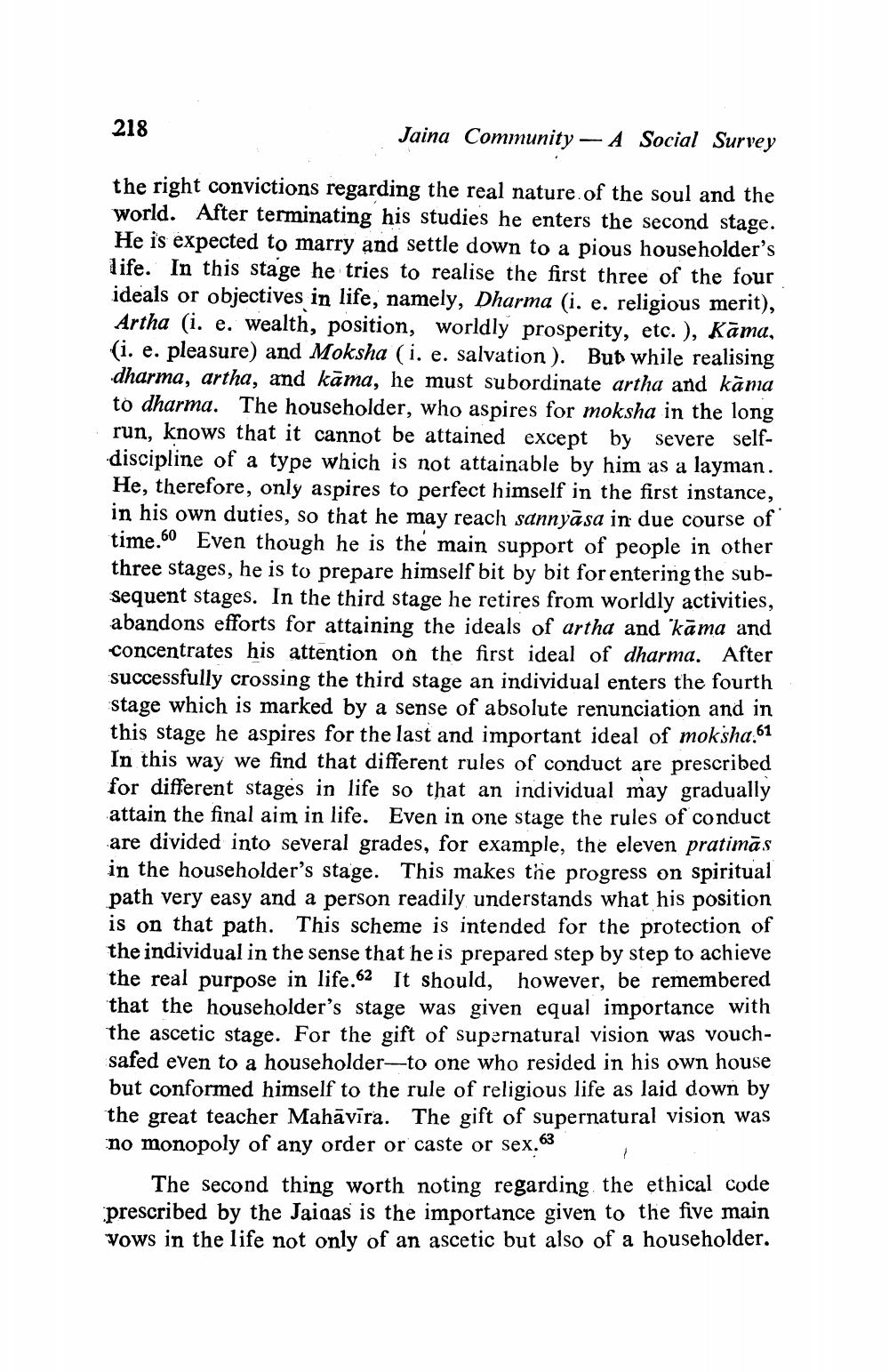________________
218
Jaina Community - A Social Survey
the right convictions regarding the real nature of the soul and the world. After terminating his studies he enters the second stage. He is expected to marry and settle down to a pious householder's life. In this stage he tries to realise the first three of the four ideals or objectives in life, namely, Dharma (i. e. religious merit), Artha (i. e. wealth, position, worldly prosperity, etc. ), Kāma, (i. e. pleasure, and Moksha (i. e. salvation). But while realising dharma, artha, and kāma, he must subordinate artha and kama to dharma. The householder, who aspires for moksha in the long run, knows that it cannot be attained except by severe selfdiscipline of a type which is not attainable by him as a layman. He, therefore, only aspires to perfect himself in the first instance, in his own duties, so that he may reach sannyāsa in due course of time.60 Even though he is the main support of people in other three stages, he is to prepare himself bit by bit for entering the subsequent stages. In the third stage he retires from worldly activities, abandons efforts for attaining the ideals of artha and 'kāma and concentrates his attention on the first ideal of dharma. After successfully crossing the third stage an individual enters the fourth stage which is marked by a sense of absolute renunciation and in this stage he aspires for the last and important ideal of moksha.61 In this way we find that different rules of conduct are prescribed for different stages in life so that an individual may gradually attain the final aim in life. Even in one stage the rules of conduct are divided into several grades, for example, the eleven pratimās in the householder's stage. This makes the progress on spiritual path very easy and a person readily understands what his position is on that path. This scheme is intended for the protection of the individual in the sense that he is prepared step by step to achieve the real purpose in life.62 It should, however, be remembered that the householder's stage was given equal importance with the ascetic stage. For the gift of supernatural vision was vouchsafed even to a householder-to one who resided in his own house but conformed himself to the rule of religious life as laid down by the great teacher Mahāvīra. The gift of supernatural vision was no monopoly of any order or caste or sex.63
The second thing worth noting regarding the ethical code prescribed by the Jainas is the importance given to the five main Vows in the life not only of an ascetic but also of a householder.




